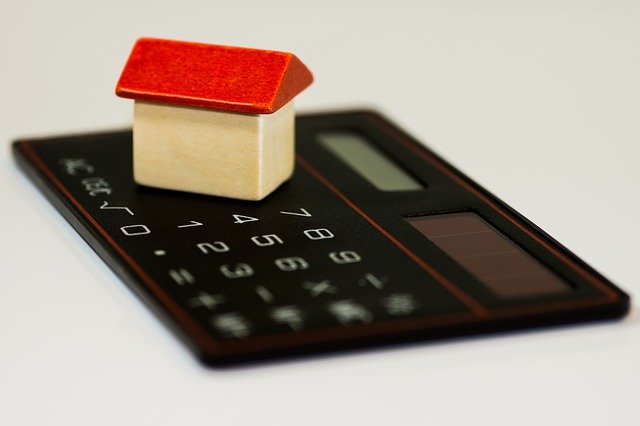Autumn Budget 2021: News for Landlords
Published on October 31, 2021 by Sarah Mac

This month’s Autumn Budget and Spending Review centred on post-COVID economic recovery. A number of announcements were made that look set to impact landlords and buy to let investors.
Gas boiler replacement grants
The government’s Heat and Buildings Strategy, announced in early October, will make it possible for landlords to access grants of £5,000 to replace gas boilers with heat pumps from April 2022.
85 per cent of rental properties use gas central heating systems. The government has a plan to replace them with heat pumps as part of its goal to achieve net zero carbon emissions by 2050. After 2035, it will no longer be possible to buy gas boilers. However, as an alternative method of providing domestic heating and hot water, the heat pump is a costly investment, requiring an outlay of between £6,000 and £18,000, depending on size.
In addition to the Heat and Buildings Strategy, the Budget and Spending Review has pledged £3.9 billion to improve the warmth of buildings in England and Wales and make them less expensive to heat. There will also be £450 million to grow the heat pump market in England and Wales, with the goal of cutting the cost of heat pumps by 25-50 per cent by 2025.
The Green Homes Grant, axed not long after it was introduced, is not set to be replaced, despite the expectation of an alternative being announced during the Autumn Budget. The Heat and Buildings Strategy may assist with boiler replacements, but won’t be contributing towards other types of green upgrades, such as insulation, double glazing or draught proofing.
Extension to Capital Gains Tax deadline
It was widely expected that Capital Gains Tax (CGT) would be increased during the Autumn Budget, but in the end no reforms were announced. Instead, the deadline for reporting and paying Capital Gains Tax on the sale of residential property in the UK has been increased from 30 to 60 days, as of 27th October 2021.
The Treasury says that the extended payment window will allow taxpayers more time to report and pay any CGT due.
The decision to avoid any rise in the tax as part of the recent budget is good news for landlords opting to sell their properties in the near future. But a future CGT increase is likely to materialise at some point, with Rishi Sunak having already asked for recommendations on reform.
Changes to Universal Credit
Not long after the £20 uplift in Universal Credit payments came to an end, a new £2 billion fund has been introduced which is reckoned to be worth around £1,000 for those families claiming Universal Credit, many of which will be residential tenants.
As of December 2021, the government will cut the amount being recovered from workers claiming Universal Credit. It will drop from 63p to 55p for every £1 earned.
The Resolution Foundation think tank says that 4.4 million households have experienced a drop in income of £1,000 a year as a result of the removal of the Universal Credit uplift. The Chancellor did say that the uplift was always only a temporary measure, and that the new change will plug that gap.
COVID-19 debt fund
Whilst it wasn’t officially part of the Autumn Budget, a £65 million fund to assist tenants struggling with pandemic-related rent arrears was launched by the Department for Levelling Up, Housing and Communities.
The scheme will be run by local authorities in England, and will aim to provide support to 950,000 low-income households in rent arrears; to 1.4 million behind with their council tax bills, and to 1.4 million in arrears with their gas and electricity bills.
The fund has been welcomed as a strategy for reducing homelessness, especially following the closure of the furlough scheme and the end of the evictions ban. However, it is reckoned that £65 million will fall well short of what is required in reality. With nearly four million low income households in arrears with household bills, the fact that the money is being funnelled towards those most at risk of homelessness means a large number of people who need help are actually being overlooked.
Chris Norris, Policy Director at the National Residential Landlords Association, commented that COVID-19 related rent arrears are more in the region of £300 million, and that the Chancellor should be taking things further if rent debts are to be removed as a risk to economic recovery.
Making Tax Digital delayed until 2024
Announced ahead of the Autumn Budget, landlords earning more than 10,000 per year will be given a lifeline of another 12 months to prepare for Making Tax Digital. The new digital reporting rules for income tax Self-Assessment will now commence on 6 April 2024.
Funding for the property market
It is reckoned that government investment in housing and housing-related activity will top £24 billion, including £11.5 billion towards affordable homes.
The government has also promised £1.8 billion to help provide up to 160,000 new homes on brownfield land, as well as a further £5 billion towards removing unsafe cladding from the highest risk buildings.
Finally, a new tax will target property developers who declare profits of £25 million or more. The four per cent tax will be siphoned off to fund the likes of non-compliant cladding removal.
Property industry commentators have said that whilst new home funding and brownfield regeneration is welcome, there still remains the problem of inadequate supply of social rented housing, which is putting extreme pressure on the private rented sector. This is an issue set to get worse, given that the Local Government Association (LGA) predicts that council waiting lists could increase to 2.1 million by next year.

